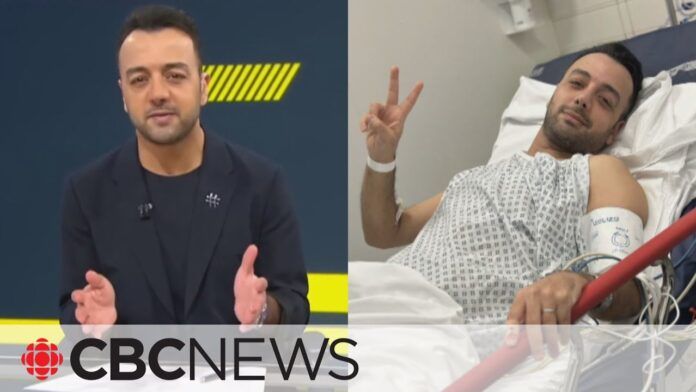After a violent attack in Wimbledon, Pouria Zeraati advocates for the classification of Iran’s revolutionary guards as a terrorist entity
Pouria Zeraati, an Iranian journalist based in London, has urgently called for the UK government to classify Iran’s Islamic Revolutionary Guard Corps (IRGC) as a terrorist organization. This demand follows a harrowing incident where Zeraati was stabbed outside his home in Wimbledon by unidentified assailants, believed to have since fled the country. Zeraati, who works for the broadcaster Iran International, shared his ordeal and subsequent stance during an interview with BBC Radio 4’s Today program.
The journalist’s attack is part of a broader pattern of threats and aggressions that Iranian dissidents face on foreign soil, attributed to the IRGC’s expansive influence. Zeraati’s accusations against the IRGC include attempts to destabilize the Middle East, assassinations, and kidnappings, supporting his call for its proscription. His plea gains additional weight following a recent escalation in the Middle East, where the IRGC’s involvement in aggressive acts against Israel, using drones and missiles, has been noted.
The UK government’s hesitation to proscribe the IRGC reflects complex diplomatic dynamics. Despite the IRGC’s known activities, including direct threats against British nationals, the UK maintains diplomatic engagements with Tehran, which officials argue are crucial for national interests. Home Office Minister Laura Farris emphasized the importance of keeping diplomatic channels open, despite recognizing the IRGC’s nefarious activities.
Iranian expatriates in the UK, like Saman Rasoulpour and Mahsa Piraei, echoed Zeraati’s concerns, reporting personal threats and broader safety fears due to the IRGC’s reach and influence. Rasoulpour highlighted ineffective diplomatic measures against the Islamic Republic’s tactics, which continue to target dissidents abroad.
The debate around the IRGC’s classification brings to light the delicate balance between national security interests and international diplomacy. While the UK has imposed sanctions on over 400 Iranian entities and individuals, including the IRGC, the full proscription as a terrorist organization remains a contentious issue. This stance has sparked criticism from Iranian activists and victims’ families, who argue that the UK’s current policies do not sufficiently deter the IRGC’s malign activities on British soil and beyond.
